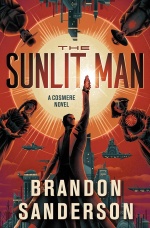Author: Jonathan Green
-
Notes on Don Bradley’s Lost 116 Pages
This is about six years too late to count as a book review, but Don Bradley’s The Lost 116 Pages: Reconstructing the Book of Mormon’s Missing Stories is excellent. It is a rare combination of scriptural investigation and historical whodunit that is both fascinating and insightful.
-
Making Sense of Prophecies: An Update
A while ago, I published a series of posts, “Making Sense of Prophecies,” that connected my academic research to the prophecy of “Lutius Gratiano.” (You know the one: “The old true gospel and the powers thereof are lost….”) Then the editor of the Journal of Mormon History suggested the topic might work as an article.
-
The Confessing Church
People are probably going to bring up the Confessing Church frequently, so it’s best to get some things straight at the outset.
-

Civil religion and imperial cult
What does it mean to abstain from food polluted by idols? It’s one of the more pressing questions that we face today.
-
Hunger
During those infrequent occasions when I’ve been able to teach pre-modern history and literature, one of the surprisingly consistent elements of the material we look at is hunger.
-
This is bad for the Church
Personalist autocracies are bad for 99.99% of the people who live under them. By enabling bribery and corruption, they’re a significant drag on the economy. A few people get rich, while everyone else ends up worse off. By promoting incompetent but loyal functionaries, they make it difficult to accomplish important government tasks or provide the…
-
It’s bad
In polite society we treat elections as an opportunity to advance our self-interest or express policy preferences, about which reasonable people can disagree. And most of the time that may be true and we’re left to choose between various imperfect options, but in this era I think the dwindling tribe of values voters has it…
-
Lost books, golden plates, and Mosaic authorship
Call it an archetype, call it folklore. Whatever you call it, the idea of finding something fantastical in an old book in a library, or in a book hidden away centuries ago, is one of those things that rattles around in our minds and has been rattling around our culture for centuries if not millennia:…
-
On the inefficacy of Zoom sacraments: a note on media and religious history
A telling aspect of the Restoration is what the golden plates couldn’t do.
-
It’s not about the Christmas trees
For the last several weeks, Syria has been a rare and unlikely bright spot in a grim world.
-
The war hymns bring me solace and comfort
Periodically someone or another will issue a call to remove hymns with militaristic themes or martial music from the hymnbook, or at least rewrite them to make them overtly pacifistic. The sentiment is noble and understandable, but mistaken. The new hymnbook may reduce the number of martial hymns or soften their edges, but I hope…
-
Rational belief in Book of Mormon historicity III: Why I believe
In the last two posts, I’ve argued that a limited chronology model primarily focused on Mosiah-3 Nephi 7 doesn’t excessively strain historical plausibility, and then turned around and argued that 1 Nephi-Enos was a living text that was adapted to reflect the state of the Nephite coalition around the time of Benjamin and later. But…
-
Rational belief in Book of Mormon historicity II: A historicist reading and reconstruction of 1 Nephi-Enos
Approaching the Book of Mormon as a historical text helps make sense of aspects of the book that an exclusive focus on the text as a work of fiction or on its nineteenth-century context overlooks. Several of these aspects relate to the opening books, from 1 Nephi to Enos. One aim of these books is…
-
Rational belief in Book of Mormon historicity I: a limited chronology model
Over the next few posts, I’m going to sketch out an argument that believing in the historicity of the Book of Mormon is a rational choice. To put it briefly: the Book of Mormon does not need to strain historical plausibility nearly as much as it might seem; treating the Book of Mormon as a…
-
Five stories about the time God told me to run a marathon
1. …and all I got was a finisher’s medal Saying that God told me to run a marathon is a provocative formulation, but not inaccurate.
-
Public schools should not post the Ten Commandments
Schools should post the Proclamation on the Family instead.
-

Faith crisis in Brandon Sanderson’s Sunlit Man
This post is full of spoilers. Don’t read it until you’ve read the book, which is very much worth reading and has become one of my favorites by Sanderson.
-

Review: Christopher Blythe, Terrible Revolution: Latter-day Saints and the American Apocalypse
Christopher James Blythe. Terrible Revolution: Latter-day Saints and the American Apocalypse. New York: Oxford University Press, 2020. ISBN 978-019-7695159. Terrible Revolution traces the central place of apocalypticism in LDS history and belief along multiple axes. Chronologically, the book traces the varieties of apocalypticism from the American religious context of Joseph Smith’s earliest activity through the…
-
The original sins of Mormon blogging
If the discussions here and at sites like this one are sometimes less than satisfactory, it’s partly because of unstated conventions and informal norms that got started nearly two decades ago and that we’re often barely conscious of today. Two especially need to be rethought.
-
How I taught the Proclamation on the Family
As the Sunday School president at the time (December 2021), I told the teachers in advance that I wanted them to do two things. First, I wanted them to teach the doctrine. Second, I wanted them to teach it so that whoever their students were and whatever their situation, they would feel welcome and accepted.…
-
Missions and memory
People keep asking me for proof that the irritating tics in Mormon writing I’ve mentioned actually exist. In that respect, Taylor Kerby’s post over at BCC is useful in a couple of ways.
-
Everything wrong with Mormon writing (I)
Collectivize the ignorance, individualize the enlightenment.
-
I once was Lehi
In the scriptures, we find (among other things) stories we slip into in order to make sense of our lives. We are Adam and Eve, Joseph preparing for a famine, David facing Goliath, Alma the Younger looking back at his choices. We teach people to seek answers by earnestly praying like Joseph Smith in the…
-
Christian Nationalism
One type of journalism I particularly enjoy not reading is the LDS-shaped hole in long-form articles about the agonies of American Christianity.
-
Notes on Revelation
[As I was going through my files, I found this draft that written four years ago. As it has about 24 hours of relevance left, I’m publishing it now. Happy New Year.] When I teach Revelation 1-11 to my youth Sunday School class, I’ll probably start off by saying something about gasoline.
-
Prosper in the Land
In a long-ago post, John Fowles referred to a Book of Mormon couplet as the book’s thesis: Inasmuch as ye shall keep my commandments ye shall prosper in the land; but inasmuch as ye will not keep my commandments ye shall be cut off from my presence (2 Nephi 1:20)
